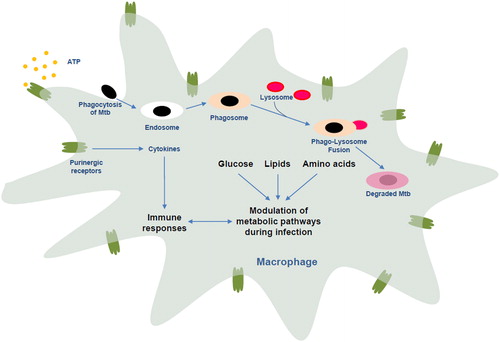Synthesis and breakdown of biomolecules through biochemical pathways in the cells for various cellular processes such as cell survival, growth, replication and so on are known as cellular metabolism. The cellular metabolism is not only essential for organization of cellular processes, but it is crucial for tailoring and shaping the host immunity to defend infection and maintain immune homeostasis. Additionally, at cellular and molecular levels, several metabolic intermediates are key deciding factors for many immunological events and induction of cytokines and hence are required to develop appropriate protective responses. Therefore, dysregulation of metabolic pathways may change the susceptibility to disease. This issue of International Reviews of Immunology describes how immunometabolism influences immunological responses, particularly, the macrophage function during vaccination. The issue also provides the possibilities of fine tuning the metabolic pathways or metabolic intermediates to treat different medical conditions ().
Tuberculosis (TB) is one of the common diseases in developing countries caused by Mycobacterium tuberculosis (Mtb). Mtb broadly causes two kinds of tuberculosis, lung or pulmonary and extrapulmonary TB. Emergence of drug resistant Mtb is a serious threat world-wide and global efforts are going on to understand the complexity of Mtb and develop appropriate drugs and vaccines. Although bacille Calmette-Guérin (BCG) is a vaccine widely used for TB, the host-BCG interaction is poorly understood. The first review article in this issue by Liu et al. discusses the nonspecific immunity induced by BCG through changing the flux of host metabolic pathways and reestablishing the epigenetic marks (Citation1). The article is useful to the researchers working in TB, immunometabolism, vaccine biology and researchers working on boundaries of immunology and epigenetics (Figure-1).
The energetics of cellular metabolic pathways are mainly depends on ATP (Adenosine triphosphate), which is considered an energy currency of the cell. The extracellular ATP and its consituents or derivatives binds with the family of purinergic receptors that are expressed in various tissues such as adipose tissues, kidney, heart and brain and play a vital role in various biological process, particularly in neuromodulatory functions in the nervous system. The second review in this issue by Zyma et al. discusses the role of purinergic receptors in immunity and its functional maneuvering in various pathophysiological processes (Citation2). The article will be interesting to broad readers of neuroimmunology and medical chemistry or researchers working on development of small molecules for modulation of purinergic receptor for various physiological conditions (Figure-1).
Macrophages are sentinel in host defense. The role of macrophages in innate immunity is sensing microbes through a family of innate immune sensors and subsequently induces inflammatory cytokines and phagocytosis. Furthermore, it has scavenging function by engulfing necrotic and apoptotic cells, immune complexes, or microbe infected host cells. Macrophages also play an important role in the processing and presentation of microbial antigen, and then activating adaptive immune T cells to develop appropriate anti-microbial responses. The last article in this issue by Vijay Kumar. discusses the complexity of macrophage biology and the development of various infectious or noninfectious diseases or syndromes upon dysregulation of signaling pathways or diseases developed due to gene deficiency (Citation3). This article will be useful to broad readers of immunobiology (Figure-1).
References
- BCG-induced trained immunity in macrophage: reprograming of glucose Metabolism. . Int Rev Immunol. (this issue).
- Characteristics and the role of purinergic receptors in pathophysiology with focus on immune response. Int Rev Immunol. (this issue).
- Phagocytosis: phenotypically simple yet a mechanistically complex process. Int Rev Immunol. (this issue).

